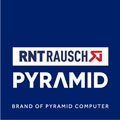AI models are true data guzzlers: a single GPT training run consumes terabytes of text, while image recognition systems must analyse millions of photos. But while your AI power skyrockets, your traditional storage collapses under the data avalanche. File servers groan, NAS systems buckle, and your projects stall in the traffic jam of data. Object storage, once dismissed as a niche solution, puts an end to this bottleneck. It has evolved from insider tip to indispensable foundation of any serious AI strategy for businesses.
The AI revolution demands new data strategie
AI models devour vast, often unstructured datasets – from images and videos to sensor data and texts. Today, unstructured data makes up around 80 to 90% of a company’s total data volume. The result: immense demands on data storage and constantly growing challenges for businesses.
The data flood of artificial intelligence
Imagine this: your company wants to deploy an intelligent chatbot that answers customer queries 24/7. To achieve that, it must learn from thousands of conversations, emails, and product data to deliver precise and helpful answers. Or perhaps you use AI to analyse your customers’ purchasing behaviour and deliver personalised recommendations in your online shop – which requires processing huge amounts of transactional data, clicks, and preferences.
The figures speak for themselves: A modern Large Language Model like GPT-o3 requires up to 45 terabytes of text data for training. Image recognition models like DALL-E process hundreds of millions of images – equivalent to several petabytes of raw data. Even “small” company AIs for chatbots or recommendation systems quickly consume hundreds of gigabytes of data per month. Traditional storage systems are quickly exhausted here.

Short on time?
We've visually summarised this blog article just for you.
Browse through the PDF now to strengthen your resilience for the long term.
The limits of traditional storage systems
Conventional storage solutions, as we know them from everyday office life, are optimised for structured data and manageable file volumes. These include:
- File systems (e.g. on NAS – Network Attached Storage): Data is stored in a tree structure, like folders on your computer. Intuitive for humans, but quickly becomes confusing for AI applications that must access millions of files. Each access requires traversing long directory paths – wasting valuable time.
- Block-based storage (e.g. SAN – Storage Area Network): Stores data in fixed blocks, like sectors on a hard drive. Very fast for single, defined data packets but less flexible when managing huge amounts of unstructured AI data.
Both approaches are usually “hierarchical” and scale “vertically”. That means: they become more powerful by upgrading individual components (e.g. bigger disks, faster processors). But once maximum capacity is reached, performance drops.
Bottlenecks in parallel access and metadata management
Reality is sobering: a consumer NAS reaches its limits with just 50 to 200 parallel accesses – but your AI clusters require thousands of simultaneous streams. Scale-out NAS or NVMe SAN are faster but far more expensive.
Another problem: file and block storage support only basic metadata – filename, creation date, access rights. AI applications need more context:
- What does an image show?
- Where was a sensor value recorded?
- Which patient belongs to a medical scan?
Rich, custom metadata is the key to making vast datasets usable for AI. New solutions are required.
Object storage: the storage architecture for the AI era
Object storage breaks with the old rules. Instead of cramming data into folders, it stores them as individual objects in a massive, flat address space called a “bucket”. Each object consists of:
- the data itself,
- a globally unique ID, and
- – the game-changer – extensible, rich metadata.
This is a blessing for AI applications. Detailed descriptions of the data simplify finding, categorising, and processing massive datasets. The flat architecture also enables virtually unlimited horizontal scalability. During training or inference, AI models often require simultaneous access to huge amounts of data. Because object storage is inherently distributed and massively parallelisable, many AI clients can access different objects simultaneously. Best of all: compared to traditional storage systems, object storage is more cost-efficient – especially for unstructured data. Many object storage solutions run on standard servers, lowering overall TCO even further.
Direct comparison: NAS, SAN, and object storage
| Storage solution | Mid-Range NAS | Enterprise NAS (Scale-out) | SAN/Block (All-Flash) | Object storage |
| Scalability | up to 100 TB | up to60 PB | up to20 PB | virtually unlimited |
| Parallel access | approx. 50 to 200 | 1,000+ | approx. 100 to 5,000+ | 10.000+ |
| Cost per TB | low to medium | high | very high | low to medium |
| AI Framework Integration | NFS/SMB | POSIX, RDMA | Block volumes | Nativ via S3 or HTTP-APIs |
| Metadata support | basic | rich | none | rich and extensible |
| Setup complexity | low | medium | high | low |
Note: These values are general guidelines. Scalability, parallelism, and costs depend on specific implementation and vendor.
At a Glance: The Benefits of Object Storage for AI Workloads</H2>
- Limitless Scalability: Out of space? Not with object storage! Its flat architecture enables virtually unlimited horizontal scaling. Just add new nodes to expand into petabytes or exabytes – without losing performance.
- Intelligence Through Metadata: Turn data into a knowledge base. With custom metadata, AI systems can instantly find, filter, and analyse content without checking every single file. Training accelerates dramatically.
- Maximum Cost Efficiency: Often software-defined and running on standard hardware, object storage significantly reduces TCO compared to proprietary SAN or NAS. Smart investment, maximum impact!
- Compatibility and Flexibility: Access via simple RESTful APIs. The Amazon S3 standard is the de facto reference, supported by nearly all modern cloud apps and AI frameworks – enabling seamless integration into automated pipelines.
- Security by Design: Built for secure internet use. Unlike file or block storage (often limited to LANs), object storage supports modern, encrypted standards like HTTPS – keeping your data safe, anywhere.
Unleash your data potential: object storage in practice
Since every S3-compatible object storage solution “speaks the same language”, even SMEs can optimise storage for AI. How could this look for you? The possibilities are vast.
Full power for your AI workloads
- Central Data Hub (Data Lakes): Think of object storage as your unlimited data archive. Consolidate all business data – customer, sales, documents, sensor readings – in one place. The perfect foundation for analytics and training your AI models.
- AI Training Without Delays: Imagine your computer vision model training with 10 million product images. With object storage, 200 GPU workers access datasets in parallel – without slowing each other down. What once took two days is done in hours.
- Real-Time Inference for Millions of Requests: Your AI recommendation engine needs to access customer data, histories, and product catalogues for 50,000 visitors simultaneously. Object storage delivers in under 10 ms – while traditional file servers collapse under metadata load.
Beyond AI – the smart solution for backup, content, and IoT
- Backup & Archiving: Say goodbye to expensive, complex backup systems. Object storage offers cost-effective, highly scalable long-term archiving with minimal admin effort.
- High Availability: Most systems replicate objects across multiple servers – ensuring data redundancy and accessibility at all times.
- Efficient Content Delivery: Running a shop, large website, or knowledge base? Object storage enables fast, reliable delivery of media and documents, improving load times and user experience.
- IoT Data: For businesses with sensors, smart machines, or connected devices, vast datasets are generated. Object storage stores them cost-effectively and makes them available for analytics or predictive maintenance.
Sustainability and ESG compliance through efficient data management
Object storage is not only cost-efficient but also greener.
- Optimised distribution and reduced redundancy cut power consumption by up to 40%.
- Intelligent tiering shifts rarely used data into energy-saving archives.
The result: lower CO₂ emissions, improved ESG performance, and reduced operating costs – a triple win for future-oriented businesses.
Our service: master the data flood for AI with RNT
S3 doesn’t just mean Amazon. “S3-compatible” means your application can talk to storage – whether hosted in Virginia, Frankfurt, or your own server room. You’re not locked to hyperscalers but free to choose the best infrastructure for your needs. With our Yowie® product family, we provide powerful, S3-compatible object storage solutions, designed for modern businesses – and made in Germany. Yowie appliances are turnkey solutions offering all the benefits of object storage, including:
- S3 Compatibility: Seamless workflow integration via full S3 API support.
- Scalability: Grow flexibly with your data – without limits.
- Data Sovereignty: Keep data safe in Germany under strict local laws.
- Ransomware Protection: S3 Object Lock ensures resilience against tampering and ransomware.
- Performance: Optimised for demanding workloads and AI projects.
- Flexibility: Ideal not only for enterprises but also SMEs with <1 PB growth per year.
Yowie® Hybrid Cloud Storage: Transform Your Data Management</H3>
Manage, protect, and store your most valuable asset with Yowie® – the formula for unleashing your data potential. Like its namesake from Australian mythology, Yowie stands for strength, reliability, and adaptability. It’s AI-ready, built to adapt to today’s and tomorrow’s technologies. Create a secure, scalable data lake that integrates seamlessly with any processing tool. Say goodbye to outdated, siloed systems. Yowie® delivers modern data management for businesses of all sizes. You decide the mix of on-premises and cloud environments that fits best. At the same time, you maintain strict security, full data control, and strong malware protection – without extra cost. Benefit from low TCO and an efficient, sustainable storage solution overall.
The success of AI projects depends entirely on the underlying data infrastructure. Without a scalable and high-performance storage system, even the most expensive AI cluster remains inefficient. We provide the foundation that enables our customers to drive their innovations forward without compromise.
Marco Prutky, Product Manager Server & Storage at RNT

Conclusion: ready for the AI future with object storage
Object storage is no longer a nice-to-have but the cornerstone of modern AI infrastructures. With horizontal scalability, lightning-fast parallel processing, and lower costs, object storage outpaces file and block storage by far. Thanks to S3 compatibility, European providers deliver the same functionality as hyperscalers – often with more sovereignty and clearer cost structures. Those investing now in a flexible, S3-capable platform lay the foundation for future projects. While competitors struggle with data bottlenecks, you’re already racing into the AI future with object storage. The best time to switch is now.
Ready to ignite your storage turbo?

Patricia Hillebrand
Technical Alliances Manager , RNT Rausch GmbH
Sources:
RNT
https://rnt.de/loesungen/yowie-hybrid-cloud-storage/
https://rnt.de/wp-content/uploads/2023/06/Object_Storage_GER_A4.pdf
https://rnt.de/loesungen/appliances/
https://rnt.de/wp-content/uploads/2022/03/YOWIE.pdf
ULTIHASH
https://www.ultihash.io/blog/why-object-storage-is-the-future-of-ai-ml-storage
SC Synergy
https://scsynergy.com/wissen/blog/s3-object-storage/
NetApp
https://www.netapp.com/data-storage/what-is-object-storage/
ComputerWeekly
Termly
https://termly.io/de/ressourcen/artikel/is-ai-model-training-compliant-with-data-privacy-laws/
TD Synnex
AWS Documentation
Know-how about digitalisation, servers and storage

NIS2 made easy: Immutable storage contributes to compliance
The new NIS2 Directive presents companies with the challenge of enhancing their cybersecurity measures and ensuring data integrity. With immutable storage, businesses can ensure that critical data is permanently protected and cannot be altered. This technology not only provides increased security but also meets the stringent requirements of NIS2.
Discover how immutable storage can help your company comply with the directive while safeguarding your sensitive information.
Foundation for the security of IT ecosystems
In a data-driven world, opportunities and risks are rising equally. AMD…
S3-API as a real-world storage layer
The S3 API has transformed from a cloud-native solution into a scalable,…
Edge Computing for the SMB/SME – sense or nonsense?
There are good reasons for moving workloads to the edge: real-time applications…
Making IT safe
This October is European Cybersecurity Awareness Month which draws particular…
NIS2 Directive: Cybersecurity requirements and impact on businesses
There are many reasons why companies have cause for concern these days —…
Edge Computing in digital healthcare
The digital exchange of medical data saves lives. Because if all professionals…







